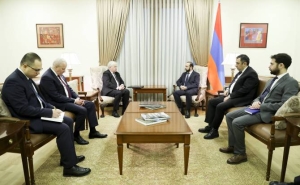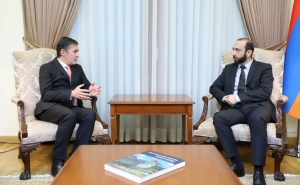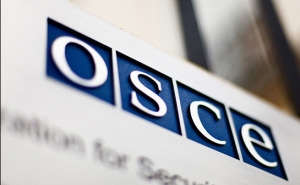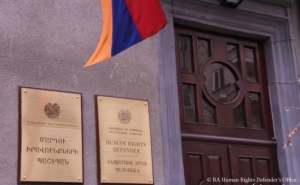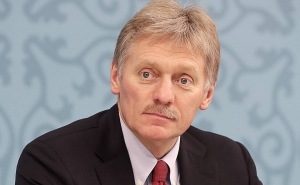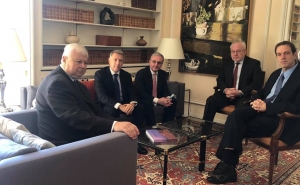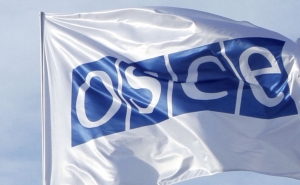 The Main Messages of the OSCE Minsk Group Co-Chairs' Statement
The Main Messages of the OSCE Minsk Group Co-Chairs' Statement
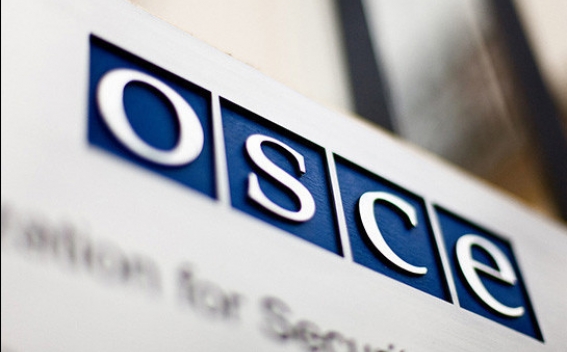
Speaking in the National Assembly, Nikol Pashinyan gave a positive assessment to the statement issued by the OSCE Minsk Group Co-Chairs and emphasized the readiness of the OSCE Minsk Group Co-Chairs to continue the negotiation process within the framework of the principles well-known to the sides.
Despite some really important observations, there are a number of problematic points in the statement, which once again not only testify to the mediators' policy of creating artificial balances, but also the strengthening of a number of Azerbaijani approaches in the international perception, which is an evidence of the lack or ineffectiveness of the diplomatic work of the Armenian government.
We'll elaborate further on the content of the statement, the wording in it and its purpose below.
First of all, it should be noted that the statement was quite belated, even after all of this time, the Co-Chairs once again refrain from making a political assessment of the war unleashed by Azerbaijan against Artsakh and from touching upon one of the core principles of the OSCE on non-use of force. Instead, they note with satisfaction the consolidation of the ceasefire. This once again can be perceived by Azerbaijan as a proof of permissiveness, a signal to further continue its aggressive anti-Armenian policy.
It is possible that the OSCE MG Co-Chairs are trying to outline the range of prior issues that have not been settled so far, particularly, the return of all POWs and other detainees, the lifting of restrictions on access to Nagorno-Karabakh, the preservation and protection of religious and cultural heritage, and so on. The OSCE MG Co-Chairs also touch upon the most recent issue raised by Azerbaijan - the exchange of all data necessary to conduct demining.
It is especially worrying that the urgent humanitarian issue, on which Azerbaijan undertook commitment under the November 10 document, which tough the latter refuses to fulfill - the issue of the return of prisoners- is equated with other issues, including Azerbaijan's demand for maps of mine fields.
However, there is also one "remarkable" point here: fixing the community approach in the following way – “the fostering of direct contacts and co-operation between communities affected by the conflict”. This shows that Azerbaijan’s inter-community approach is gradually strengthening in the perception of the international community and mediators, which in its essence is a serious blow to the subjectivity of Artsakh.
It is positive for us that the OSCE Minsk Group Co-Chairs state that the conflict is still not resolved. It should be solved on “the basis of the elements and principles well-known to the sides”. This refers to the principles of non-use of force, territorial integrity, and the equal rights and self-determination of peoples and the so-called "Madrid Principles". It is on this basis that the Co-Chairs propose to resume the dialogue, to formulate an agenda acceptable to all sides without preconditions and to move forward with that. This is a message first of all to Aliyev, who has recently stated that the conflict has been resolved, the status issue cannot be discussed and the OSCE Minsk Group Co-Chairs can deal with demarcation, humanitarian nature issues. But at the same time the call to agree jointly upon a structured agenda is worrying, as it will give Baku the freedom to push forward exclusively with its demands.
It is noteworthy to mention the observation of MG Co-Chairs on continuing activities and possible expansion of the mission of the Personal Representative of the OSCE Chair-in-Office. It is quite uncertain in the current situation; what mission should Kasprzyk's office carry out when Russian peacekeepers ensure the security of Artsakh and even in Syunik, the Russian military base controls the Armenian-Azerbaijani border in some places?
In general, the statement was issued for the following purposes- to fix the current situation, to give a boost to the resumption of the negotiation process, define the scope of current issues that need to be resolved.
In conclusion, we can state that the statement of the OSCE Minsk Group Co-Chairs contains one important message - despite the recent escalating tensions, including the threats that these tensions could be projected on the Artsakh conflict and turn it into a arena of confrontation and rivalry, the United States and Russia are ready to work together to agree on a common approach.
Other materials on this subject
- Russian forces have clearly failed in their duties: senators press Biden Administration to break Azerbaijan’s blockade The United States cannot stand aside while the Aliyev regime callously threatens the lives of Nagorno-Karabakh’s citizens, and must hold Azerbaijan to account for blocking a civilian population’s access...
- US calls for the full restoration of free movement through the Lachin Corridor "We remain concerned about impeded access to the Lachin Corridor and the humanitarian implications of this situation. This sets back the peace process and undermines international confidence. We call for...
- Azerbaijani forces violate the ceasefire in Artsakh The ceasefire violation was reported to the command of the Russian peacekeeping troops.
- Azerbaijani units violate ceasefire in several directions, Artsakh’s Defense Ministry says The Armenian side has no losses. The incidents of ceasefire violations were reported to the command of the Russian peacekeeping troops.
- Russian Diplomat Reassures Armenians Over Corridor In Karabakh "The parties are in direct contact, and I assure you that the peacekeepers will not move a single centimeter until there is a new corridor," Seleznyov said.
-
 17:08
17:08The regular session of the Anti-corruption Policy Council takes place in Jermuk
-
 15:05
15:05The Prime Minister sends congratulatory messages to the supreme leader of Iran and the President of Iran
-
 11:11
11:11Armenia sends earthquake aid to Turkey
-
 10:43
10:43Commemoration of the Pontiff St. Sahak Partev
-
 09:16
09:16Some roads are closed and difficult to pass in Armenia
-
 19:55
19:55Phone conversation of the Foreign Minister of Armenia with the U.S. Assistant Secretary of State for European and Eurasian Affairs
-
 18:30
18:30Prime Minister Pashinyan and President Khachaturyan meet
-
 18:20
18:20Ararat Mirzoyan with Co-Chairman of the OSCE Minsk Group of France Brice Roquefeuil
-
 17:01
17:01Humans could land on Mars within 10 years, Musk predicts
-
 16:45
16:45France, US urge 'immediate' end to Nagorno Karabakh blockade
-
 16:01
16:01Blockaded Nagorno Karabakh launches fundraiser to support quake-hit Syria
-
 15:59
15:59Earthquake death toll in Turkey rises to 18,342
-
 15:43
15:43Ararat Mirzoyan Held a Telephone Conversation with Sergey Lavrov
-
 15:06
15:06French president rules out fighter jet supplies to Ukraine in near future
-
 14:47
14:475 Day Weather Forecast in Armenia
-
 14:44
14:44President Vahagn Khachaturyan wrote a note in the book of condolences opened in the Embassy of Syria in Armenia
-
 14:20
14:20Azerbaijan’s provocations impede establishment of peace and stability – Armenian FM tells Russian Co-Chair of OSCE MG
-
 12:57
12:57France representation to OSCE: Paris calls on Azerbaijan to restore freedom of movement through Lachin corridor
-
 11:40
11:40Command of Kosovo forces highly appreciated preparation of Armenian peacekeepers
-
 10:16
10:16The United States withdrew from sanctions against Syria for six months the provision of assistance after the earthquake
day
week
month
Humidity: 20%
Wind: 1.54 km/h


